Michael Caldwell
Marshfield Clinic
Computational Drug Repositioning Using Continuous Self-controlled Case Series
Apr 20, 2016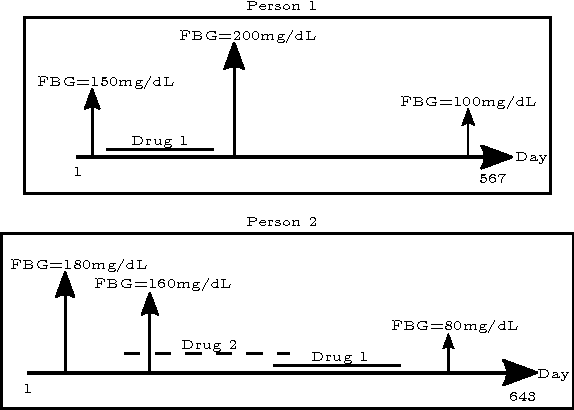
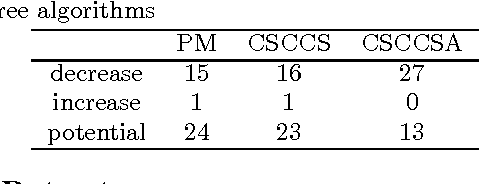
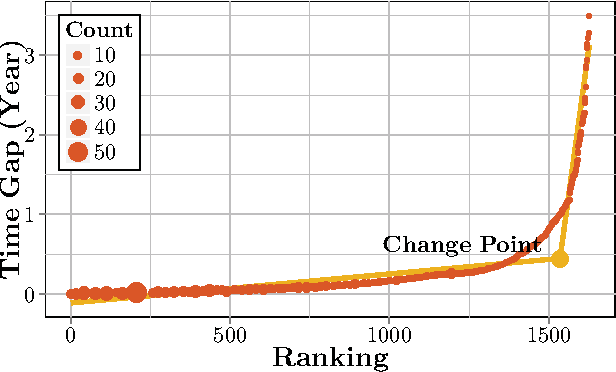
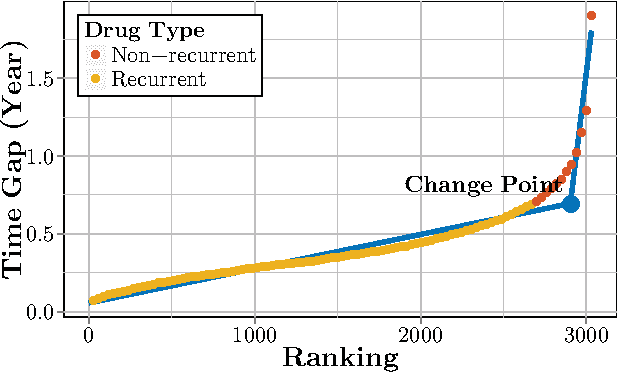
Abstract:Computational Drug Repositioning (CDR) is the task of discovering potential new indications for existing drugs by mining large-scale heterogeneous drug-related data sources. Leveraging the patient-level temporal ordering information between numeric physiological measurements and various drug prescriptions provided in Electronic Health Records (EHRs), we propose a Continuous Self-controlled Case Series (CSCCS) model for CDR. As an initial evaluation, we look for drugs that can control Fasting Blood Glucose (FBG) level in our experiments. Applying CSCCS to the Marshfield Clinic EHR, well-known drugs that are indicated for controlling blood glucose level are rediscovered. Furthermore, some drugs with recent literature support for the potential effect of blood glucose level control are also identified.
Demand-Driven Clustering in Relational Domains for Predicting Adverse Drug Events
Jun 27, 2012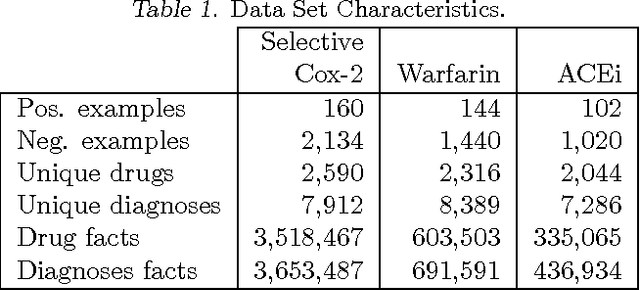
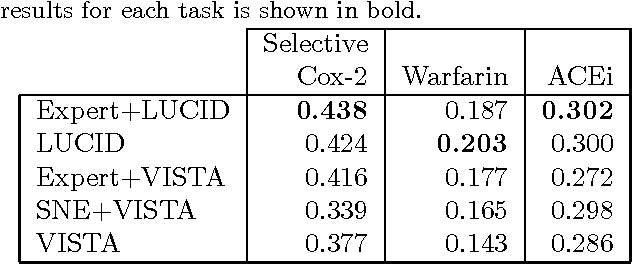
Abstract:Learning from electronic medical records (EMR) is challenging due to their relational nature and the uncertain dependence between a patient's past and future health status. Statistical relational learning is a natural fit for analyzing EMRs but is less adept at handling their inherent latent structure, such as connections between related medications or diseases. One way to capture the latent structure is via a relational clustering of objects. We propose a novel approach that, instead of pre-clustering the objects, performs a demand-driven clustering during learning. We evaluate our algorithm on three real-world tasks where the goal is to use EMRs to predict whether a patient will have an adverse reaction to a medication. We find that our approach is more accurate than performing no clustering, pre-clustering, and using expert-constructed medical heterarchies.
 Add to Chrome
Add to Chrome Add to Firefox
Add to Firefox Add to Edge
Add to Edge